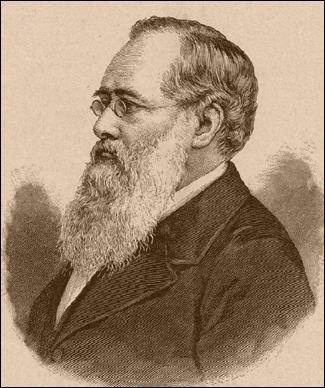Complete Works of Wilkie Collins (1402 page)
Read Complete Works of Wilkie Collins Online
Authors: Wilkie Collins

Our married pair live now on the paternal estate in Ireland; and Miss Jillgall reigns queen of domestic affairs. I am still strong enough to pass my autumn holidays in that pleasant house.
At times, my memory reverts to Helena Gracedieu, and to what I discovered when I had seen her diary.
How little I knew of that terrible creature when I first met with her, and fancied that she had inherited her mother’s character! It was weak indeed to compare the mean vices of Mrs. Gracedieu with the diabolical depravity of her daughter. Here the doctrine of hereditary transmission of moral qualities must own that it has overlooked the fertility (for growth of good and for growth of evil equally) which is inherent in human nature. There are virtues that exalt us, and vices that degrade us, whose mysterious origin is, not in our parents, but in ourselves. When I think of Helena, I ask myself, where is the trace which reveals that the first murder in the world was the product of inherited crime?
The criminal left the prison, on the expiration of her sentence, so secretly that it was impossible to trace her. Some months later, Miss Jillgall received an illustrated newspaper published in the United States. She showed me one of the portraits in it.
“Do you recognise the illustrious original?” she asked, with indignant emphasis on the last two words. I recognised Helena. “Now read her new title,” Miss Jillgall continued.
I read: “The Reverend Miss Gracedieu.”
The biographical notice followed. Here is an extract: “This eminent lady, the victim of a shocking miscarriage of justice in England, is now the distinguished leader of a new community in the United States. We hail in her the great intellect which asserts the superiority of woman over man. In the first French Revolution, the attempt made by men to found a rational religion met with only temporary success. It was reserved for the mightier spirit of woman to lay the foundations more firmly, and to dedicate one of the noblest edifices in this city to the Worship of Pure Reason. Readers who wish for further information will do well to provide themselves with the Reverend Miss Gracedieu’s Orations — the tenth edition of which is advertised in our columns.”
“I once asked you,” Miss Jillgall reminded me, “what Helena would do when she came out of prison, and you said she would do very well. Oh, Mr. Governor, Solomon was nothing to You!”

This novel was left unfinished after Collins’ death in 1889. It was completed by historian and novelist Sir Walter Besant.
The novel had already begun serialisation in
The Illustrated London News
, even though the author had not yet completed it. When it was published in book form in 1890, the volume included Besant’s preface explaining the circumstances of the collabouration.
Collins had started writing the novel in 1887, when newspapers were full of stories about Fenian violence in the wake of the previous year’s defeat of the First Irish Home Rule Bill. The novel recounts the story of Lord Harry Norland, a member of a squad of political assassins; the novel’s heroine is Iris Henley, a bold and nonconformist Englishwoman who falls in love with the Irish Norland despite his criminal activities.

BLIND LOVE
CONTENTS